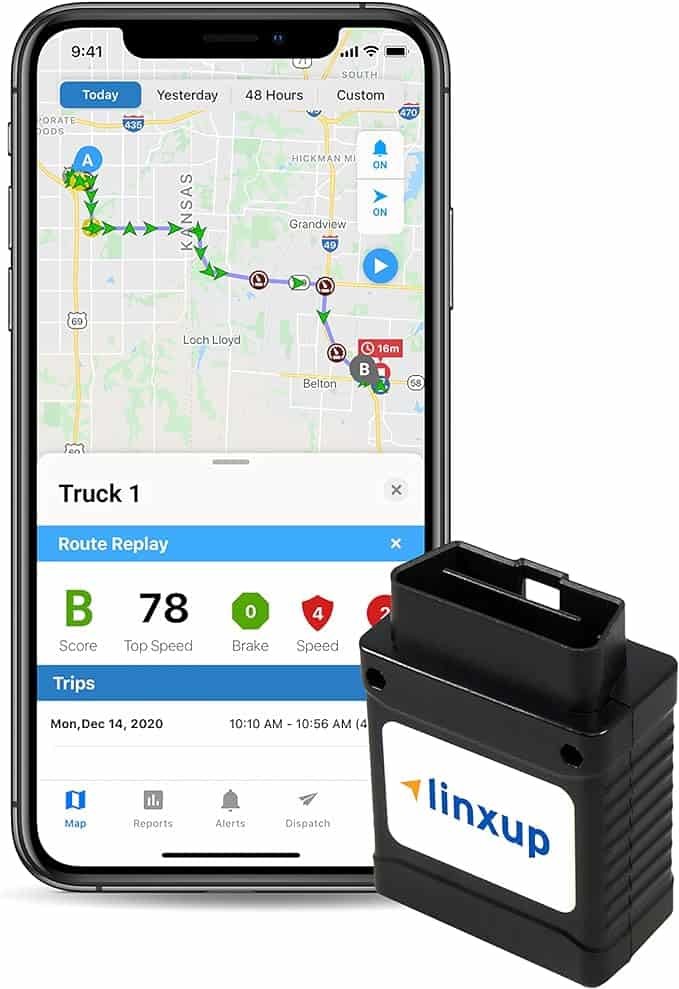Understanding vehicle performance and location is crucial for both individual owners and fleet managers, especially when it comes to diesel vehicles. Diesel engines, known for their power and efficiency, require specific monitoring to ensure optimal operation and longevity. This is where Gps Obd2 Diesel trackers come into play. These devices plug directly into your diesel vehicle’s OBD-II port, providing real-time data and insights that can revolutionize how you manage and maintain your vehicle.
What is a GPS OBD2 Diesel Tracker?
A GPS OBD2 diesel tracker is a compact device that connects to the On-Board Diagnostics II (OBD-II) port found in most modern diesel vehicles. Once connected, it utilizes GPS technology to track the vehicle’s location and retrieves data from the engine control unit (ECU) related to vehicle performance. This data can include speed, engine RPM, fuel consumption, diagnostic trouble codes, and much more. Unlike simpler GPS trackers, OBD2 diesel trackers offer a deeper level of insight into your vehicle’s operation, making them invaluable for proactive maintenance and efficient management.
Key Benefits of Using GPS OBD2 Trackers for Diesel Vehicles
For diesel vehicle owners and fleet operators, GPS OBD2 trackers offer a range of advantages tailored to the specific needs of diesel engines:
Real-Time Location Tracking Optimized for Diesel Fleets
Knowing the precise location of your diesel vehicles at any moment is essential for dispatching, route optimization, and security. GPS OBD2 trackers provide real-time location updates, ensuring you always know where your assets are. This is particularly beneficial for managing diesel fleets, allowing for efficient task allocation and improved customer service response times.
Diesel Engine Diagnostics and Health Monitoring
Diesel engines have unique maintenance needs. OBD2 trackers can access and transmit crucial diagnostic data specific to diesel engines. This includes monitoring diesel particulate filter (DPF) health, AdBlue levels (for vehicles with Selective Catalytic Reduction systems), fuel injection performance, and other diesel-specific parameters. Early detection of potential issues through diagnostic alerts can prevent costly breakdowns and extend the lifespan of your diesel engine.
Fuel Efficiency Monitoring for Diesel Engines
Diesel fuel costs can significantly impact operational expenses. GPS OBD2 trackers provide data on fuel consumption, allowing you to identify inefficient driving habits or potential fuel wastage. By monitoring fuel usage in real-time and over time, you can implement strategies to improve fuel efficiency across your diesel fleet, leading to substantial cost savings.
Driving Behavior Insights Tailored for Diesel Vehicles
Aggressive driving can be particularly detrimental to diesel engines, leading to increased wear and tear and reduced fuel economy. OBD2 trackers can monitor driving behaviors such as harsh braking, rapid acceleration, and speeding, providing insights into driving habits that may negatively impact your diesel vehicles. Alerts for these behaviors enable you to coach drivers towards safer and more economical driving practices, specifically beneficial for maintaining diesel engine health.
Geofencing and Security for Diesel Assets
Protecting your valuable diesel vehicles is paramount. Geofencing features allow you to set virtual boundaries and receive alerts if a vehicle enters or exits designated areas. This is crucial for security, preventing unauthorized use, and ensuring diesel vehicles remain within operational zones.
Key Features to Look for in a GPS OBD2 Diesel Tracker
When selecting a GPS OBD2 tracker for your diesel vehicle, consider these essential features:
Fast and Frequent Location Updates
For effective real-time tracking, especially in dynamic environments, choose a tracker that provides fast location updates. Look for devices that offer updates as frequently as every few seconds to ensure accurate and up-to-the-minute location information for your diesel vehicles.
Comprehensive Diesel Diagnostic Data
Ensure the tracker provides access to a wide range of diesel-specific diagnostic data. This should include parameters like DPF status, AdBlue levels, fuel system performance, and diesel-specific fault codes. The more comprehensive the diagnostic data, the better you can proactively manage your diesel engine’s health.
Robust Alert System
A reliable alert system is crucial for proactive management. Look for trackers that offer customizable alerts for speeding, harsh braking, geofence breaches, and, importantly, diesel engine diagnostic alerts. Timely alerts enable immediate action to address issues, whether related to driving behavior or vehicle maintenance.
User-Friendly Platform and Support
The effectiveness of a GPS OBD2 tracker depends heavily on the user platform. Choose a tracker with an intuitive mobile app and web portal that allows for easy access to data, report generation, and setting configurations. Reliable technical support is also essential to assist with setup, troubleshooting, and maximizing the benefits of your tracking system.
OBD2 Diesel Trackers vs. Wireless GPS Trackers for Diesel Vehicles
While wireless GPS trackers offer location tracking, OBD2 diesel trackers provide a more comprehensive solution for diesel vehicles. Wireless trackers are easier to hide and can be used for general asset tracking, but they lack the diagnostic capabilities crucial for diesel engine management. OBD2 trackers, by connecting directly to the vehicle’s OBD-II port, offer both precise location tracking and in-depth diesel engine data. For diesel vehicle owners and fleet managers focused on performance, maintenance, and efficiency, OBD2 trackers are generally the superior choice.
Conclusion: Optimizing Diesel Vehicle Management with GPS OBD2 Trackers
GPS OBD2 diesel trackers are powerful tools for anyone managing or owning diesel vehicles. They provide real-time location tracking, critical diesel engine diagnostics, fuel efficiency insights, and driving behavior monitoring, all accessible through user-friendly platforms. By leveraging the data provided by these trackers, you can optimize diesel vehicle performance, reduce operational costs, enhance security, and extend the lifespan of your valuable diesel assets. Investing in a quality GPS OBD2 diesel tracker is a smart move towards smarter, more efficient diesel vehicle management.
